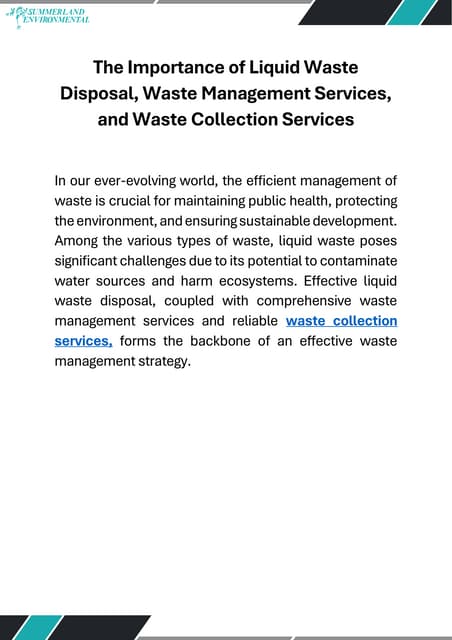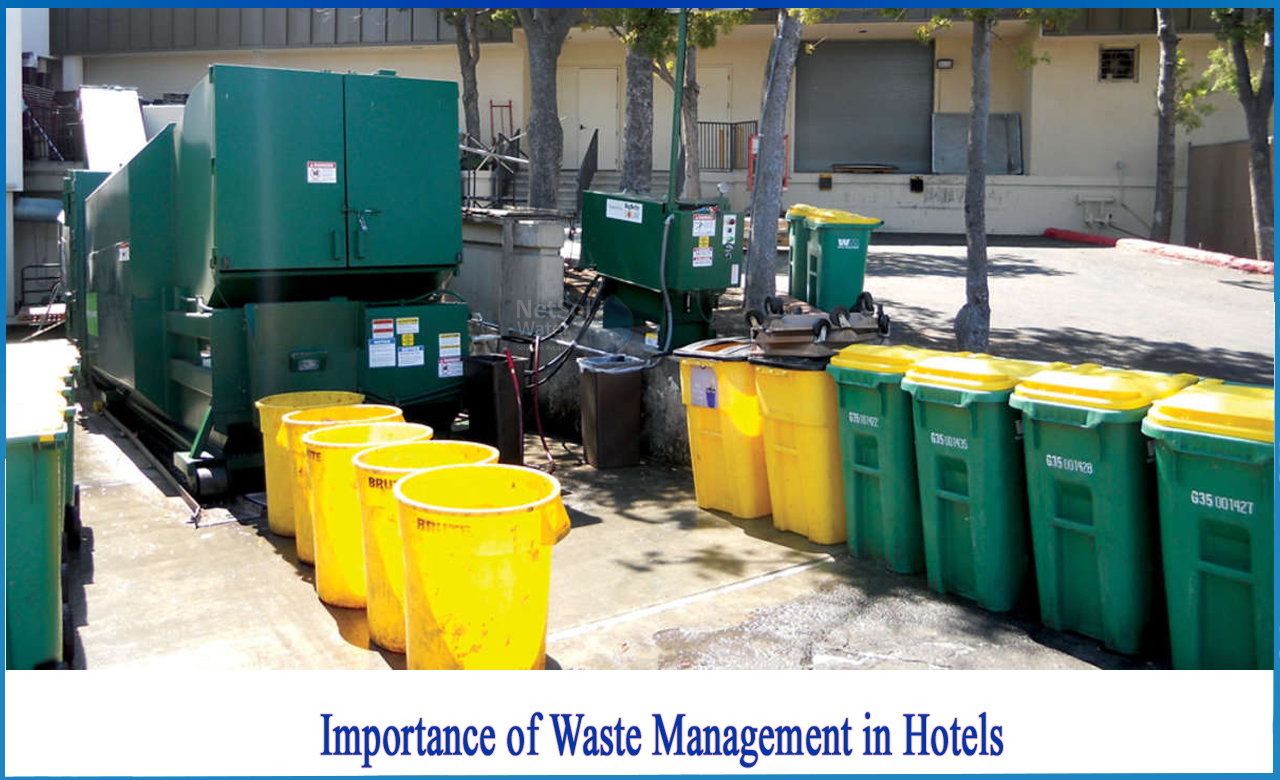The Ultimate Guide To Reclaim Waste
The Ultimate Guide To Reclaim Waste
Blog Article
The 15-Second Trick For Reclaim Waste
Table of ContentsSome Known Details About Reclaim Waste 7 Simple Techniques For Reclaim WasteGetting My Reclaim Waste To WorkThe Single Strategy To Use For Reclaim WasteThe 6-Second Trick For Reclaim Waste
Explore the kinds, occurrences, and kinds of liquid waste. Domestic sewer waste refers to the waste and products from a property septic storage tank. This sort of waste is produced by people in residences, institutions, and various other buildings. This only consists of septic systems that have a drainpipe field. The appropriate management and disposal of residential sewer waste need fluid waste to be transferred to a sewer treatment plant where the correct techniques and equipment are related to purify and deal with waste.
Commercial waste commonly consists of potential dangers, such as combustible materials or a blend of liquid and solid waste products, and calls for an advanced and detailed disposal process. The disposal of industrial waste commonly involves the filtration of waste before transportation to make sure secure and correct disposal. Hazardous waste is created from by-products and overflow of commercial procedures and manufacturing.
This sort of waste can not make use of the same sewage administration transport or processes as septic or commercial liquids. The hazardous waste management process requires the assessment and testing of liquid waste before it goes through the disposal process (liquid waste disposal). Drainage waste is the fluid waste that originates from overflow and excess stormwater in extremely inhabited areas or cities
Runoff waste can cause contamination and flooding if not managed correctly. Guaranteeing correct waste management can prevent catastrophes and reduce ecological harm.
Our Reclaim Waste PDFs
Call PROS Services today to find out about our waste monitoring and disposal solutions and the proper means to take care of the liquid waste you create.
(https://penzu.com/p/1f225eb6893bd9aa)This so-called 'wastewater' is not just an essential resource yet, after therapy, will be launched to our land, waterways or the sea. Utilized water from commodes, showers, bathrooms, kitchen sinks, washings and industrial processes is recognized as wastewater.

water made use of to cool machinery or tidy plant and devices). Stormwater, a type of wastewater, is drainage that moves from farming and city areas such as roof coverings, parks, yards, roadways, paths and rain gutters into stormwater drains, after rain. Stormwater streams untreated straight to neighborhood creeks or rivers, eventually reaching the ocean.
The Basic Principles Of Reclaim Waste
In Queensland, the majority of wastewater is treated at sewage treatment plants. Wastewater is carried from residential or commercial websites with a system of drains and pump terminals, referred to as sewerage reticulation, to a sewer treatment plant. Regional governments develop, maintain and run most sewer therapy plants. Operators are accredited under the Environmental Defense Act 1994 to release cured wastewater at an appropriate ecological criterion right into rivers.
The Division of Natural Resources encourages regional federal governments concerning handling, operating and preserving sewerage systems and therapy plants. In unsewered locations, city governments may require owners to mount specific or house sewer therapy systems to deal with domestic wastewater from toilets, kitchen areas, washrooms and laundries. The Department of Natural Resources authorises using home systems when they are shown to be effective.
Most stormwater gets no treatment. In some brand-new neighborhoods, treatment of some stormwater to eliminate my company litter, sand and crushed rock has begun making use of gross pollutant catches. Wastewater therapy occurs in 4 stages: Gets rid of solid issue. Bigger solids, such as plastics and other objects mistakenly discharged to drains, are gotten rid of when wastewater is travelled through screens.
Wastewater after that flows into huge tanks where solids clear up and are removed as sludge. Oil and residue are skimmed from the surface. Utilizes little living organisms referred to as micro-organisms to break down and eliminate continuing to be liquified wastes and fine bits. Micro-organisms and wastes are included in the sludge. Eliminates nitrogen and phosphorus nutrients that could trigger algal blossoms in our waterways and endanger water life.
Reclaim Waste Things To Know Before You Buy
Nutrient elimination is not readily available whatsoever sewage treatment plants since it needs costly specialized devices. It is ending up being extra usual in Queensland. Clear fluid effluent created after treatment may still have disease-causing micro-organisms. If this effluent is launched right into waterways such as rivers or the sea, the micro-organisms will eventually die out.

The majority of wastewater streams right into the sewerage system. Under the Act, neighborhood governments carry out approvals and permits for environmentally pertinent activities (Ages) involving wastewater launches that could have a regional influence.
Reclaim Waste Fundamentals Explained
Otherwise, samples are considered research laboratory analysis. Commonly several tests are needed to develop the degrees of each of the various pollutants such as oils, heavy metals and chemicals in water. Surveillance provides factual information regarding water top quality and can confirm that licence conditions are being met. The information obtained with tracking supplies the basis for making water top quality choices.
Report this page